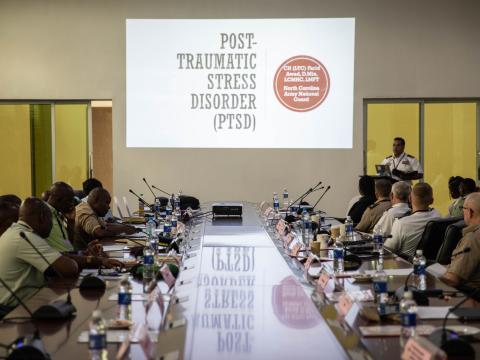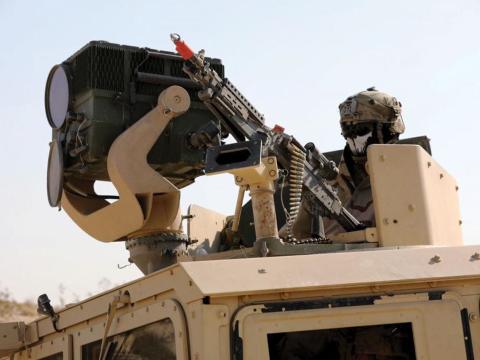Complexity and Decentralization Challenge Future Operations
At Tuesday's luncheon address to the Joint Warfighting Conference in Virginia Beach, Va., Gen. Martin E. Dempsey, USA, Commanding General, U.S. Army Training and Doctrine Command discussed the challenges for future operations with a balanced joint force. "We can't expect to predict what the future holds," Gen. Dempsey said.
At Tuesday's luncheon address to the Joint Warfighting Conference in Virginia Beach, Va., Gen. Martin E. Dempsey, USA, Commanding General, U.S. Army Training and Doctrine Command discussed the challenges for future operations with a balanced joint force. "We can't expect to predict what the future holds," Gen. Dempsey said. He alluded to comedian Steven Wright's one-liner about being a "peripheral visionary": someone who can "see the future, but only off to the side." In many respects, he continued, that is what is hampering our ability to prepare the future joint force.
And while uncertainty, complexity, rapid change and persistent conflicts remain as challenges in the operations landscape, strengths such as versatility, campaign quality, improvisation and the right instincts are the best tools for dealing with those challenges.
Gen. Dempsey reiterated some lessons learned from Iraq, not the least of which being "we could have done a better job of preparing our leaders for complexity in combat, engagement, and leadership," he said. Specialized forces require predictability from the enemy, but you won't find that kind of predictability from a decentralized enemy. "If you attack a decentralized operation in a conventional way, it becomes more decentralized," Gen. Dempsey said. To illustrate this point, the general went on to describe what happened when the recording industry butted heads with Napster, and successfully took it down only to find other file-sharing services posing even more complicated challenges for the recording industry. The same thing applies to the warfighting environment.
Perhaps the most important element of future operations is developing leaders who are comfortable with complexity, Gen. Dempsey said. Gone are the days when attrition-based simulations against predictable enemies are enough to train the leaders of future operations. Training models need to incorporate religious, tribal, economic and political scenarios and need to be extended to run in longer time frames. "If conventional wisdom is that necessity is the mother of invention, then complexity is the mother of innovation," Gen. Dempsey said. "We have to make the scrimmage harder than the game, and not the other way around."
It's also important that all collaborators in joint forces understand the challenges of complexity and decentralization. Coalition partners, for instance, who answer to different authorities and aren't decentralized can hamper our efforts and put our fighting men and women at a disadvantage, the general said. "It's our responsibility to make sure they are prepared before we send them into harm's way."



